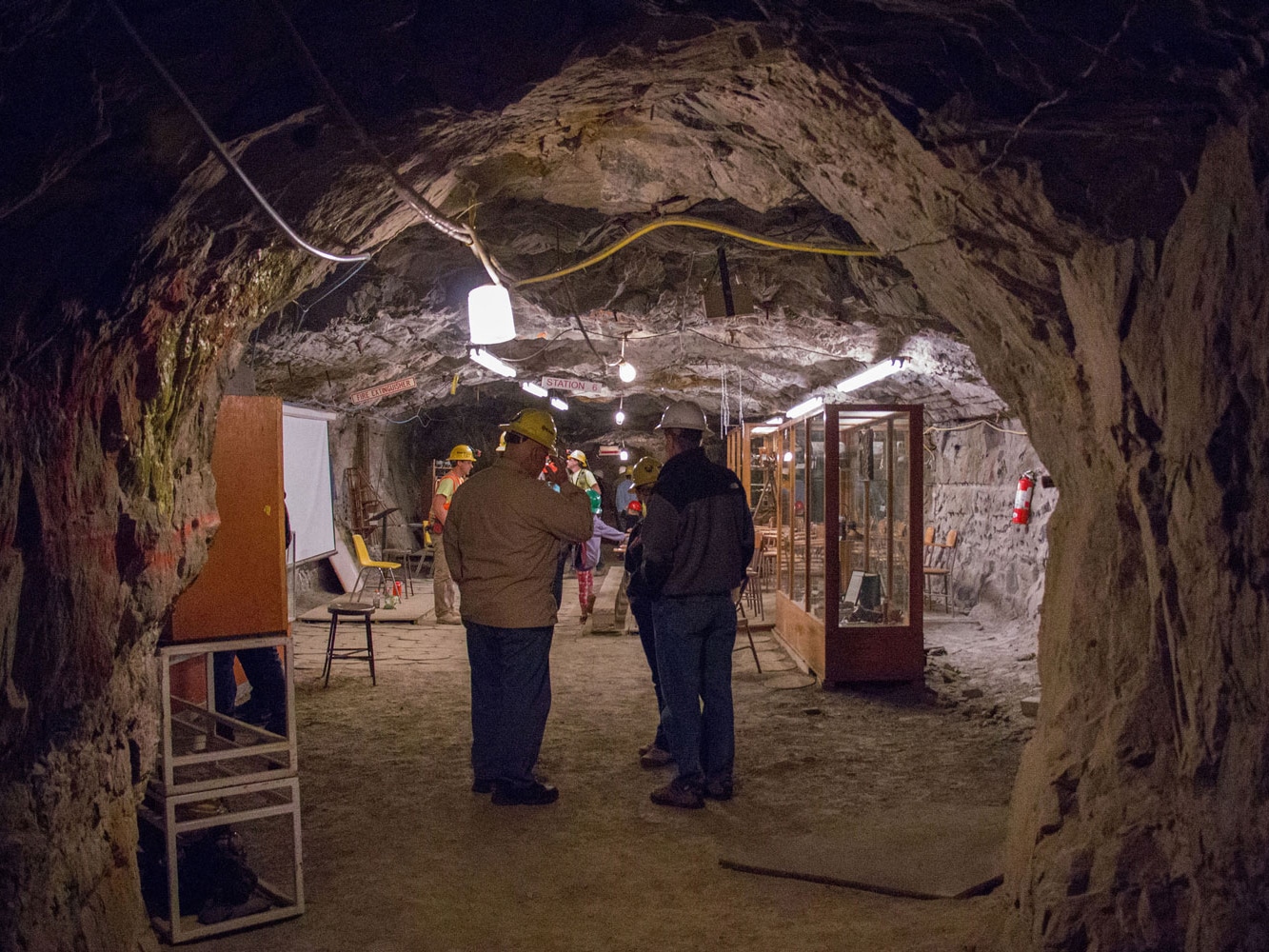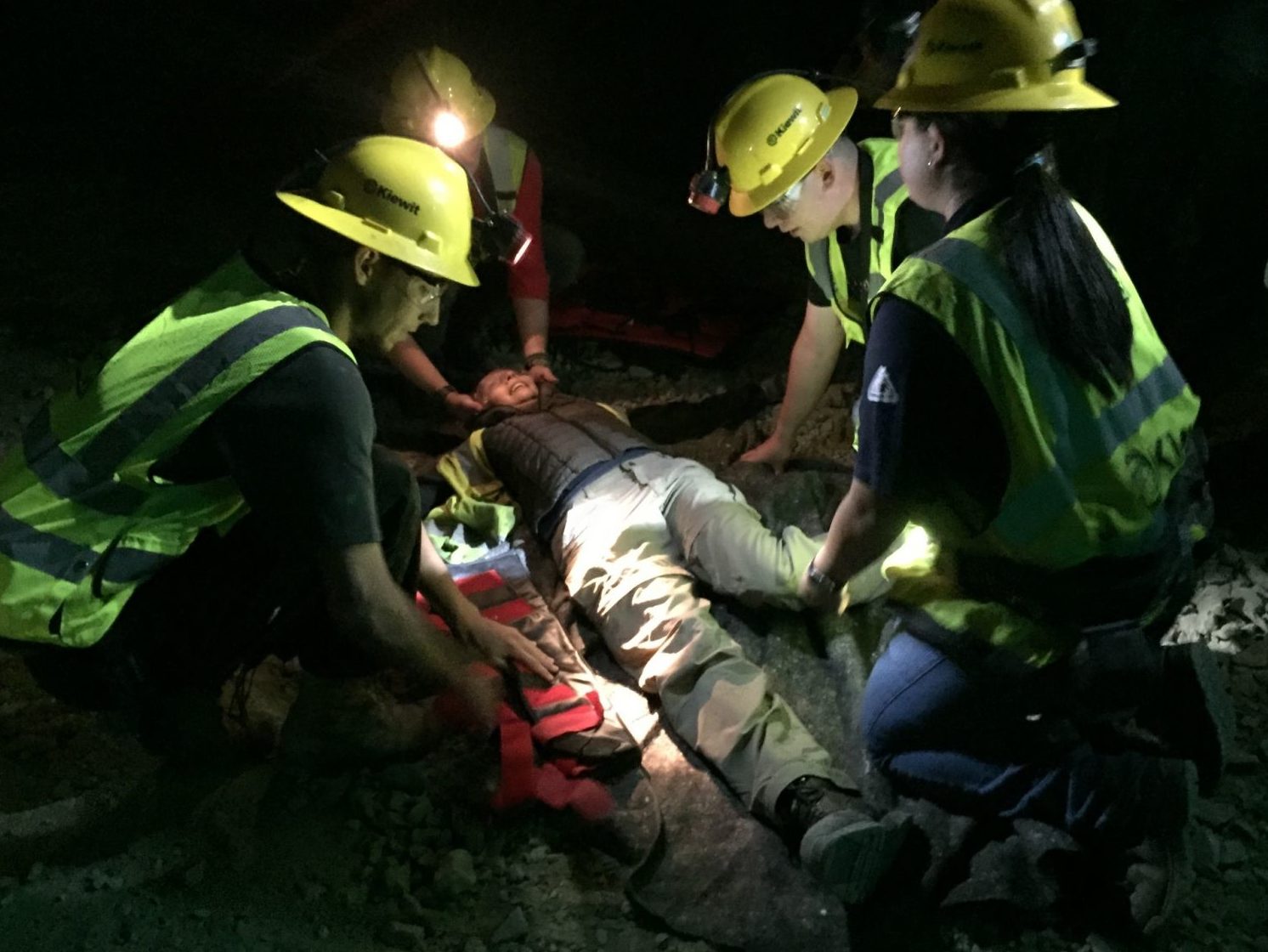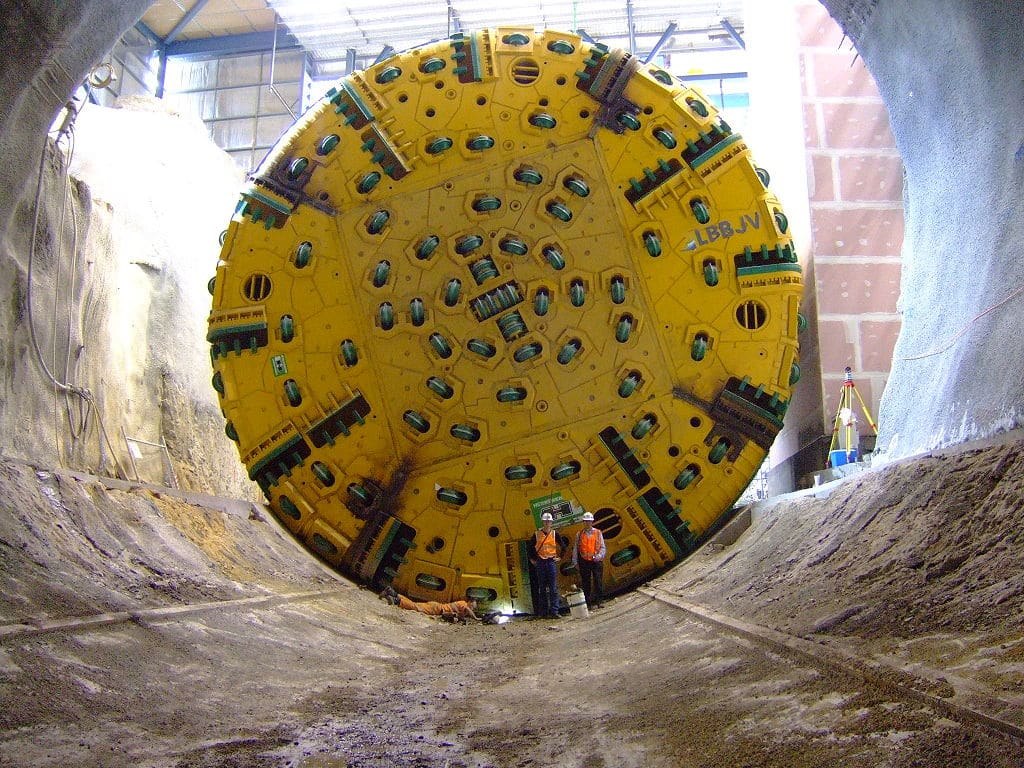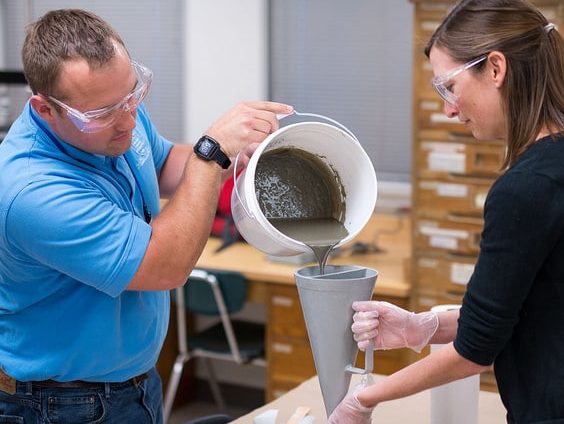Research
The Mining Engineering Department conducts research in state-of-the-art facilities including focus on the following areas of graduate research:
- VR & AI, Robotics
- Ventilation
- MS & H
- Responsible Mining
- Geomechanics, Rock Mechanics and Stability of Underground and Surface Excavation
- Computerized Mine Design and Related Applications (including Geostatistical Modeling)
- Advanced Integrated Mining Systems Incorporating Mine Mechanization and Mechanical Mining Systems
- Underground Excavation (Tunneling) and Construction
- Site Characterization and Geotechnical Investigations, Modeling and Design in Geoengineering
- Rock Fragmentation
- Mineral Processing, Communition, Separation Technology
- Bulk Material Handling
Research Centers
Edgar Experimental Mine
Colorado School of Mines’ Edgar Mine, in Idaho Springs, produced high-grade silver, gold, lead and copper in the 1870s. Today, it serves as an underground laboratory for future engineers, producing valuable experience for those being trained to find, develop and process the world’s natural resources.
Energy, Mining and Construction Industry Safety
EMCIS offers Mine Safety and Health Administration certification classes on a regular basis, including MSHA Part 48 New Miner Training and Annual Refreshers, as well as training in mine rescue, underground search and rescue and tunnel safety.
Explosives Research Lab (ERL)
The Mines Explosives Research Lab (ERL) was established to investigate explosive applications, explosive properties, explosive welding, explosive synthesis, and the effect of explosives on structures and humans. Mines is one of the few institutions in the world having board expertise in energetic education and research.
Excavation Engineering and Earth Mechanics Institute
EMI was established in 1974 to enhance education and research in the field of excavation technology both for mining and civil underground construction. EMI has developed a suite of physical property tests, cutter and cutterhead evaluation procedures for performance prediction, project costing, and design of mechanical rock excavation tools for all types of mechanical excavators.
Kroll Institute for Extractive Metallurgy (KIEM)
Since its inception, the Kroll Institute has provided financial support to both undergraduate and graduate students at CSM, many of whom, subsequently, have made important contributions, nationally and internationally, to the fields of mining, minerals, metals and advanced materials.
The Tailings Center
The Center will provide the training for specialized tailings engineers in order to improve the mining industry and increase the social and environmental license of the industry to operate.
Underground Construction and Tunneling
The underground community at Mines is comprised of a collaborative, interdisciplinary group of faculty and students from civil engineering, geology and geological engineering, mining engineering and mechanical engineering, as well as geophysics and computer science, with a collective interest in education and research in underground engineering.
In 2024, the year of our 150th anniversary, we will celebrate Colorado School of Mines’ past, present and possibilities. By celebrating and supporting the Campaign for MINES@150 you will help elevate Mines to be an accessible, top-of-mind and first-choice for students, faculty, staff, recruiters and other external partners. The Mining department’s goals for Mines@150 include upgrading facilities, scholarships, and continuing to build on student experiences both in the classroom and out in the field. When you give, you are ensuring Mines becomes even more distinctive and highly sought-after by future students, alumni, industry, and government partners over the next 150 years. We look forward to celebrating Mines’ sesquicentennial with you and recognizing the key role you play in making the MINES@150 vision a reality through your investments of time, talent and treasure. Give now







